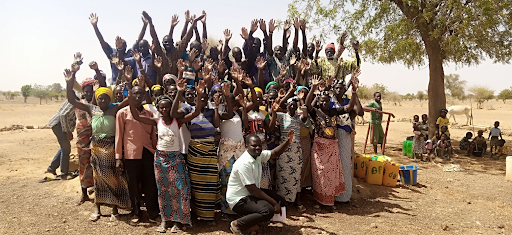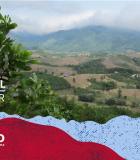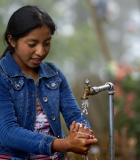In rural Burkina Faso, most people get their drinking water through boreholes, a narrow vertical shaft drilled into the ground. Women and girls are traditionally responsible for fetching water, often traveling for miles several times a week. When they reach their destination, they sometimes face broken or polluted water sources, which can harm their entire household.
As the primary users, women also serve as the managers and guardians of these waterpoints. They are the first to spot problems such as malfunctioning pumps or when users break hygiene rules. Unfortunately, women are not well represented in Water Users Associations, which are responsible for collecting contributions, ensuring sanitary usage, and repairs and maintenance. Read the full story on USAID in The Sahel Exposure page.






